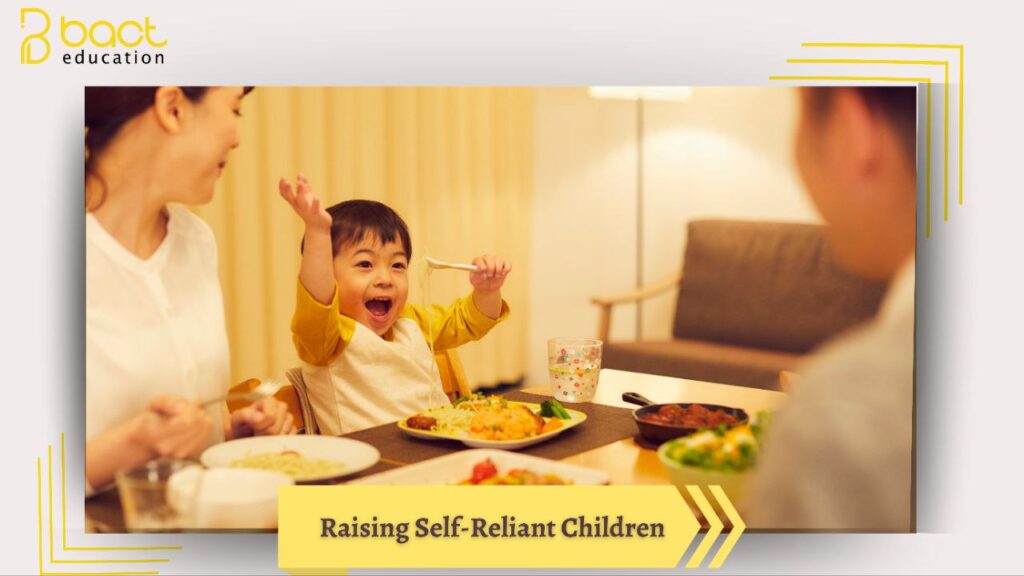: The Key to Building Strong and Independent Characters**
**Introduction:**
In a world of rapid change and continuous challenges, the goal of parenting is no longer just about providing absolute protection for children, but about preparing them to face life with confidence and the ability to make decisions. A child’s self-reliance is one of the most important pillars for building an independent personality, granting them essential life skills that stay with them into adulthood.
**What is Self-Reliance in Children?**
Self-reliance is a child’s ability to perform age-appropriate tasks and duties without total dependence on parents or others. This does not mean abandoning supervision and support, but rather giving the child the space and trust to try to solve their own problems, make their own choices, and face the consequences of their actions.
**The Importance of Developing Self-Reliance:**
1. **Boosting Self-Confidence:** Whenever a child successfully completes a task on their own, their sense of pride and competence increases, which boosts their self-confidence and belief in their abilities.
2. **Developing Life Skills:** The child learns essential skills such as tidying their room, dressing themselves, managing their time, and handling their allowance—skills that are indispensable in life.
3. **Fostering Responsibility:** When a child bears the consequences of their actions (whether positive or negative), they develop a sense of responsibility and critical thinking before acting.
4. **Enhancing Problem-Solving Abilities:** Facing small challenges teaches the child to think creatively and find solutions, rather than being dependent and immediately seeking help from others.
5. **Preparation for the Future:** A self-reliant child is better prepared to face the challenges of adolescence, university study, and professional life.
**How to Develop Self-Reliance in Children?**
* **Start Early:** You can start at an early age (2-3 years) with simple tasks like putting a toy back in its place or carrying a cup of water.
* **Offer Choices:** Instead of giving orders, offer them two limited choices, such as, “Do you want to wear the red shirt or the blue one?” This teaches them decision-making.
* **Encourage Effort, Don’t Criticize Failure:** Praise their effort, not just the outcome. If they spill water while pouring, teach them how to clean it up instead of scolding them.
* **Be a Role Model:** Children imitate those around them. Let them see you planning your day or solving a problem calmly.
* **Provide a Safe Space for Mistakes:** Allow them to try new things within safe boundaries, and accept that making mistakes is part of the learning process.
* **Avoid Immediate Intervention:** When they face a problem with a sibling or friend, give them a chance to solve it on their own before you step in.
* **Assign Responsibilities:** Give them household chores appropriate for their age, such as making the bed or helping to set the table.
**Conclusion:**
Developing self-reliance in children is a long-term investment in building their character. It is a journey that requires patience and wisdom from parents, and the courage to allow their children to fall, learn, and get up again. A self-reliant child is not a neglected child, but rather one who is well-prepared to become an adult capable of leading their life with confidence and positivity.

